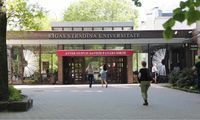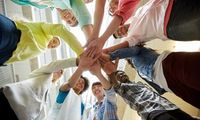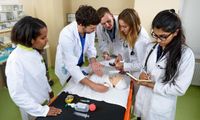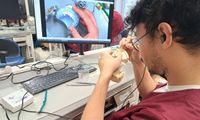The Stradiņš: a special place to study
Rīga Stradiņš University (RSU) is considered to be the most prestigious state medical university in North-Eastern Europe. In 2022, RSU was ranked among the top 1,000 universities in the world by QS World University Ranking and among the top 800 by Times Higher Education Ranking.
Stradiņš University - Latvias MedSchool
The Stradiņš dates back to the medical faculty of the Riga University of Applied Sciences, which was founded in 1919. The university has borne its current name since 2002 and currently has a total of 8,700 students, including more than 2,500 international students and 1,400 academic staff.
In addition to international degree programmes in medicine, dentistry, pharmacy, physiotherapy and nursing, the university also offers social science subjects in English. A pronounced internationalisation and a modern study concept that integrates digital technologies and is constantly being further developed are the pillars of this university.
Students from over 50 countries
Since 1990, students from all over the world have come to study at RSU, including from Australia, Finland, France, Germany, India, Norway, Russia, Sweden, Switzerland, the UK, the USA and many other countries. Currently, students come from more than 50 countries. Today, 24 per cent of the students at RSU are international students.
At the medical faculty, the figure is as high as 40 per cent. More than 1,000 Germans make up the largest group here, followed by Swedes, Norwegians, Finns and Portuguese. English is the language of instruction and communication.
The ‘Study Group’ as a pedagogical tool
Right from the start, the teaching in the medical and dental medicine courses is of a high standard and is conducted in small ‘study groups’. In the pre-clinical part of the course, these class-like teams comprise no more than 15 students. From the fifth semester onwards, in ‘the clinic’, the groups are reduced again to make effective learning possible at the university hospitals as well.
Only lectures are taught in the traditional teacher-centred style. In seminars and practical courses, great value is placed on intensive and close exchange between lecturers and students. Regular tests during the semester positively promote the learning process and ensure that the learning workload is evenly distributed. Examinations also take place at the end of the semester, but not to the same extent as at German universities.
Technology, but not at any price
At many newly established medical schools, important elements of the course are taught digitally for organisational and cost reasons. Real practical skills fall by the wayside. At RSU Riga, the situation is different: here, traditional medical training is combined with new technologies. An important part of anatomy training, for example, is the classic dissection course. 3D technology is used only as a supplement.
Dentists also have access to extensive simulation technology in their first semesters. However, the most important aspect of the course remains early contact with patients and dealing with people. Students apply what they have learned in a practical way in the day-to-day work of the Riga Dental Clinic.



